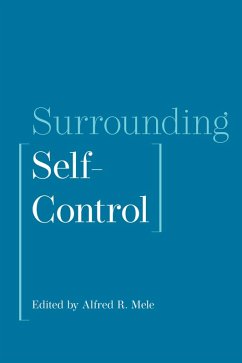
In Our Best Interest (eBook, PDF)
A Defense of Paternalism
Versandkostenfrei!
Sofort per Download lieferbar
27,95 €
inkl. MwSt.
Weitere Ausgaben:

PAYBACK Punkte
14 °P sammeln!
When, if ever, is it permissible to intervene in a person's affairs for his or her own good? This, in essence, is the moral problem of paternalism. Many consider paternalism morally objectionable. In this book, Jason Hanna argues boldly for an alternative pro-paternalist view: that intervention is permissible so long as it serves the best interest of the person subject to it, without thereby wronging others. To Hanna, the moral debate over paternalism is most fundamentally a debate about the weight and relevance of a certain kind of reason or rationale for intervention. In arguing that paterna...
When, if ever, is it permissible to intervene in a person's affairs for his or her own good? This, in essence, is the moral problem of paternalism. Many consider paternalism morally objectionable. In this book, Jason Hanna argues boldly for an alternative pro-paternalist view: that intervention is permissible so long as it serves the best interest of the person subject to it, without thereby wronging others. To Hanna, the moral debate over paternalism is most fundamentally a debate about the weight and relevance of a certain kind of reason or rationale for intervention. In arguing that paternalistic rationales provide valid and weighty reasons, Hanna considers the objections that paternalism is disrespectful, that it wrongly imposes values on people, that it violates individual rights, and that it is likely to be misapplied or abused. He argues that each of these objections fails to demonstrate that there is anything distinctively problematic about paternalism. Moreover, he attempts to situate pro-paternalism within a popular rights-based moral theory. Hanna shows that popular alternatives to pro-paternalism confront serious problems of their own, especially insofar as they attempt to distinguish permissible intervention on behalf of incompetent persons from impermissible intervention on behalf of competent adults. Although the book's central aim is to defend a moral view, it suggests how this view can be fruitfully applied in a number of real-world contexts.
Dieser Download kann aus rechtlichen Gründen nur mit Rechnungsadresse in A, B, BG, CY, CZ, D, DK, EW, E, FIN, F, GR, HR, H, IRL, I, LT, L, LR, M, NL, PL, P, R, S, SLO, SK ausgeliefert werden.













